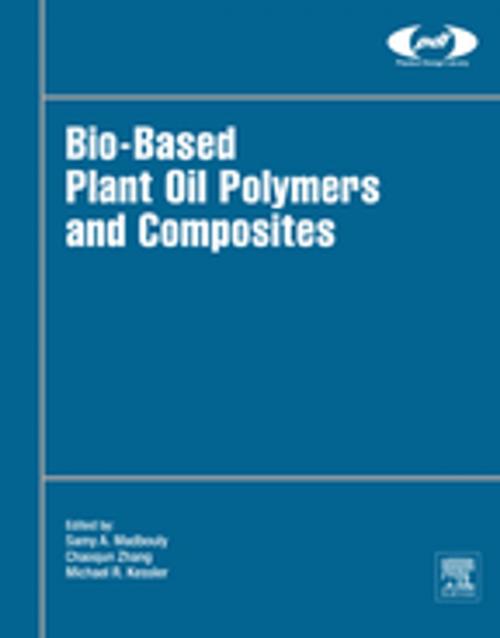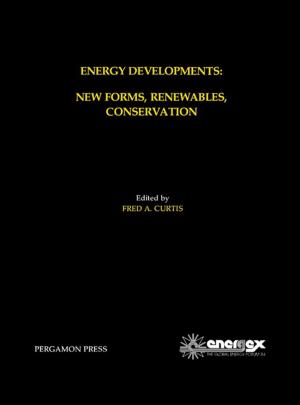Bio-Based Plant Oil Polymers and Composites
Nonfiction, Science & Nature, Technology, Textiles & Polymers, Material Science| Author: | Samy Madbouly, Chaoqun Zhang, Michael R. Kessler | ISBN: | 9780323371285 |
| Publisher: | Elsevier Science | Publication: | August 27, 2015 |
| Imprint: | William Andrew | Language: | English |
| Author: | Samy Madbouly, Chaoqun Zhang, Michael R. Kessler |
| ISBN: | 9780323371285 |
| Publisher: | Elsevier Science |
| Publication: | August 27, 2015 |
| Imprint: | William Andrew |
| Language: | English |
Bio-based Plant Oil Polymers and Composites provides engineers and materials scientists a useful framework to help take advantage of the latest research conducted in this rapidly advancing field—enabling them to develop and commercialize their own products quickly and more successfully.
Plant oil is one of the most attractive options as a substitute for non-renewable resources in polymers and composites, and is producing materials with very promising thermomechanical properties relative to traditional, petroleum-based polymers. In addition to critical processing and characterization information, the book assists engineers in deciding whether or not they should use a plant oil-based polymer over a petroleum-based polymer, discussing sustainability concerns, biodegradability, associated costs, and recommended applications.
The book details the advancements in the development of polymeric materials and composites from plant oils, and provides a critical review of current applications in various fields, including packaging, biomedical, and automotive applications. Also includes the latest progress in developing multifunctional biobased polymers—by increasing thermal conductivity or adding antibacterial properties, for example.
- Essential coverage of processing, characterization, and the latest research into polymeric materials and composites derived from plant oils (thermoplastics, thermosets, nanocomposites, and fiber reinforced composites)
- Critically reviews the potential applications of plant oil-based polymers, including sensors, structural parts, medical devices, and automotive interiors
- Includes the latest developments in multifunctional bio-based polymer composites
Bio-based Plant Oil Polymers and Composites provides engineers and materials scientists a useful framework to help take advantage of the latest research conducted in this rapidly advancing field—enabling them to develop and commercialize their own products quickly and more successfully.
Plant oil is one of the most attractive options as a substitute for non-renewable resources in polymers and composites, and is producing materials with very promising thermomechanical properties relative to traditional, petroleum-based polymers. In addition to critical processing and characterization information, the book assists engineers in deciding whether or not they should use a plant oil-based polymer over a petroleum-based polymer, discussing sustainability concerns, biodegradability, associated costs, and recommended applications.
The book details the advancements in the development of polymeric materials and composites from plant oils, and provides a critical review of current applications in various fields, including packaging, biomedical, and automotive applications. Also includes the latest progress in developing multifunctional biobased polymers—by increasing thermal conductivity or adding antibacterial properties, for example.
- Essential coverage of processing, characterization, and the latest research into polymeric materials and composites derived from plant oils (thermoplastics, thermosets, nanocomposites, and fiber reinforced composites)
- Critically reviews the potential applications of plant oil-based polymers, including sensors, structural parts, medical devices, and automotive interiors
- Includes the latest developments in multifunctional bio-based polymer composites















